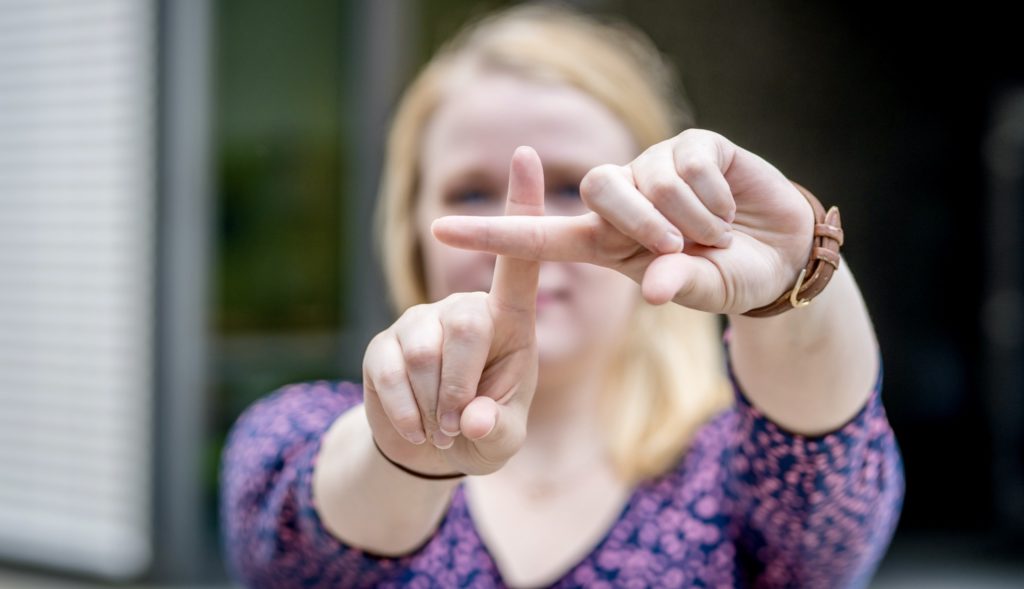
“It’s just a compliment” or “I was just kidding – don’t be like that”… This is something young women in particular often hear. We are talking about sexism. But what is it actually? What does sexism or being sexist mean and how does it show? Why is sexism even dangerous and how can you fight it?
To answer these questions, Franzi, Gina and Sophie told us about their own experiences with sexism. They explain why and how we should all question our everyday behaviour patterns.
1. Sexism is discriminatory and dangerous!
“Sexism is discrimination based on gender. This discrimination is based on the assumption that one gender is superior to the other and that this justifies oppression, discrimination and relegation,” explains Sophie (21, from Mannheim). “These processes can happen consciously or unconsciously. The term was initially defined in the 1960s in the US women’s movement.
Victims of sexism are mostly women. At this point, of course, I must emphasise that not all men exhibit sexist patterns of behaviour,” Sophie clarifies. “But girls’ and women’s lives are structurally affected by sexism, which is not the case for men. Sexism can in extreme forms such as misogyny, i.e. extreme female hostility, lead to sexual harassment and violence against women, victim shaming of female victims and other types of psychological and physical violence. Therefore, it is in everyday sexism, however, that the rethinking must begin.” Find out how you can stand up against catcalls and sexual harassment and what that means exactly here.
intombi for girls – how you can be a part of it!
? We are also interested in your story! In our #girlsforgirls online passion magazine, we introduce you every week to exciting and super strong young women, projects and important tips, all about a passion. We call this week – PassionWeek! ? For a successful start into the future – according to our motto #girlsforgirls !??? Contact us and become the author of your life story – info@intombi.de
2. Sexism is a structural problem and affects us all!
“I grew up in a sheltered environment, with space for self-realisation and many privileges that I am well aware of. But what I still can’t do is walk the streets alone at night without at least being on guard, hold a drink in my hand in a club and not pay attention to whether someone pours me something, wear what I like without getting comments about my appearance from strangers or simply being taken less seriously just because I’m a woman,” Franzi (29, from Bonn) tells us.
“Sexism is not always open and honest, it is not always directly noticeable, I am not always able to defend myself against it. I don’t want to make myself free of it. I have definitely made sexist jokes too,” she explains the problem. Gina (20, from the Ruhr area) is also aware of it. “Sexism is everywhere, even among feminists,” she says.

We should be able to develop without restrictions
“I wouldn’t say that my passion is to stand up against sexism. I have other passions – but I can only live them out if I am treated fairly. I have met many very intelligent women in my life who keep getting in their own way. This is the case, in my opinion, because sexism is a structural problem in our society,” Gina explains.
“You can’t solve this problem just by giving women more opportunities and rights, the problem goes way too far for that. I believe that sexism is something that lies very deep within all of us. It’s not just men’s fault, it’s not just women’s fault, it’s the deep-seated aspects of our society that prevent us from seeing ourselves as individuals. Of course, our gender is an important part of our being, but I believe that one should first and foremost develop as a human being, not as a man or a woman,” she makes clear.
A campaign of the Council of Europe
➤ Sexism refers to any expression (action, words, image, gesture) based on the idea that some people, mostly women, are inferior because of their gender.
➤ Sexism is harmful. It produces feelings of worthlessness, self-censorship, adoption of avoidance strategies, changes in behaviour, and deterioration of health. Sexism results from gender inequity. It disproportionately affects women and girls.
➤ Individual incidents of sexism may seem harmless, but they create an atmosphere of intimidation, fear and insecurity. This leads to the acceptance of violence, mostly against women and girls.
➤ Sexism mainly affects women.
It can also affect men and boys,
if they do not conform to the stereotypical gender roles
of the respective society.
➤ The harmful effects of sexism may be increased for some women and men because of their ethnicity, age, disability, social background, religion, gender identity, sexual orientation or other factors.
Test yourself here – How sexist might you be yourself?
3. Sexism is surmountable – if we are loud together!
“I don’t want to go into a conversation from the beginning with the mindset that I have to defend myself because of my gender,” Sophie sadly reveals to us. “I don’t want women to feel restricted in their lives just because they feel judged and rejected by their gender. I don’t want young girls to grow up thinking sexism is something they just have to put away and get used to.”
But how can we now work together against it and actually get closer to real equality free of sexism? Gina, Franzi and Sophie have concrete ideas for this. Their three steps against sexism:
- Educate yourself about sexism and its effects! “I have often wondered to what extent men in particular are to be held responsible for their sexist thoughts and behaviour patterns at all, since they are born into a society where they are not taught otherwise. But I have decided: that is no excuse. If I can educate myself about how my White Privilege affects me and how the lives of People of Color are affected by discrimination, then everyone can educate themselves about sexism and its consequences. So educating yourself and others about sexism is an important step in the right direction,” Sophie urges.
- Raise your voice against sexism and educate! “I myself have learnt from my mistakes and learn every day. Often you are not directly aware of what you can do with some actions or statements. But that’s what activism and awareness-raising is for. Being a loud voice against sexism and standing up for other people is something that makes me happy, gives me strength and pushes me forward,” Franzi reveals.
- Feminism as a step in the right direction! “Feminism doesn’t mean to me that all women now have to become men with breasts. It also doesn’t mean that women can’t be housewives anymore and that everyone has to be in the executive suite of big companies. It simply means that women can be in management positions, but they can also be housewives. In feminism as I see it, nothing has to be, but everything can be. One should simply be allowed to be what one wants to be. We have already made great progress in this area, but we are not there yet,” Gina asserts.

With its global campaign “Girls Get Equal”, Plan International also wants to draw attention to the still prevailing structural unequal treatment of girls and fight for real equality. And together – with you and all of us. Pia tells you how to do this in our article #girlsgetequal.
You might also like these articles:
#girlsgetequal – equality instead of digital violence
Stop catcalls and sexual harassment
Self-confidence through sport – this is how it can be done
Hate, hate and body-shaming online – 3 Instagram do’s & don’ts
Gender equality and sexual identity – How to do it!
Equality? I discriminated! And you?
Using art to create self-love and female empowerment


Kommentare